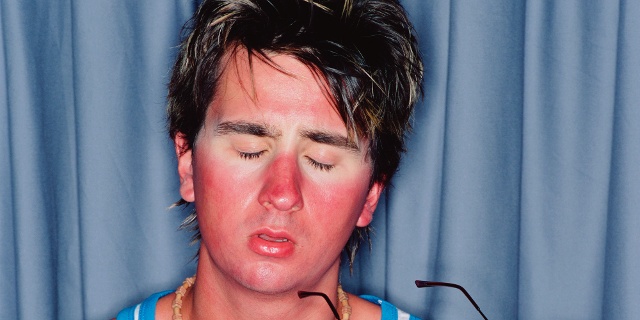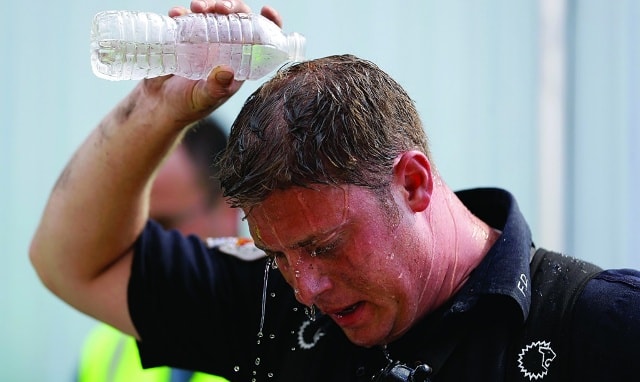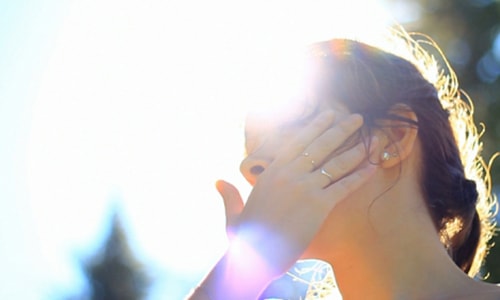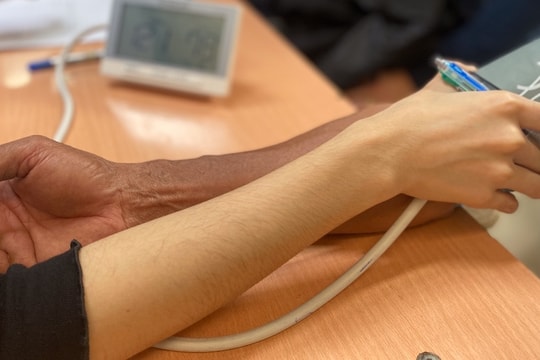Heat stroke due to heat and how to handle it
(Baonghean.vn) -Heat stroke is a condition in which body temperature increases too much, usually above 40 degrees, caused by hot weather that makes people unable to adapt, causing shock, commonly known as heatstroke.
Heat stroke is the result of increased body temperature after a period of prolonged exposure to heat, the body cannot adapt in time, causing dehydration, damaging the body's temperature control system. When suffering from heat stroke, the body's ability to dissipate heat is reduced, causing fatigue, headaches, dizziness, and in severe cases, can lead to death.
How to recognize the symptoms of heat stroke
Each person will have different signs and symptoms of heat stroke. However, common signs and symptoms of heat stroke include:
- High body temperature but no sweat
- Hot, red and dry skin
- Rapid pulse, difficulty breathing
- Strange behavior and possible hallucinations
- Disorientation
- Convulsions (or) and coma
Anyone can get heatstroke.
Anyone can get heatstroke, but the risk is higher in some people:
-Children, especially those under 4 years old, because the body's water reserve capacity is too low, dehydration occurs more quickly. On the other hand, the child's thermoregulatory center at this stage is not yet stable.
-Elderly people, especially those over 60 years old.The reason is that as we age, our respiratory and circulatory functions often decline, and our thermoregulatory centers are more easily affected. On the other hand, the elderly often have chronic diseases and often use many types of drugs. All of these factors make the elderly less adaptable than young people.
-People with certain diseases(heart, lungs, kidneys, obesity, malnutrition, high blood pressure, diabetes...) and are taking certain types of antibiotics, weight loss drugs, diuretics, sedatives, anti-epileptic drugs, cardiovascular drugs...
 |
First aid steps for heat stroke
Move the victim into the shade, remove some clothing, and pour cool or lukewarm water over the victim. Fan the victim to promote sweating and evaporation, and apply ice packs to the neck, armpits, and groin.
If the victim is conscious and able to drink, give cool or cold water that is alcohol- and caffeine-free.
Monitor the victim's body temperature regularly and continue cooling until the temperature drops to about 38.3 - 38.8 degrees Celsius.
Call an ambulance if possible. If emergency services are far away or cannot arrive immediately, ask the medical staff how to resuscitate the victim.
If the patient is unconscious and shows no signs of circulation such as spontaneous breathing, coughing, and movement, cardiopulmonary resuscitation (CPR) should be performed.
 |
How to prevent heat stroke
-Avoid places with excessive heat:On hot days, above 40 degrees, you should not go outside between 10am and 3pm. You should check the weather forecast before planning outdoor activities.
If you have to travel or work outdoors, do not work for more than 2 consecutive hours in high temperatures. You should rest and rehydrate between working hours. Do not let children, the elderly, or people with chronic diseases stay in the hot sun for more than 1 hour.
 |
- Fully equipped with personal equipment before going out:If you have to go out in hot weather, wear long-sleeved cotton shirts, which not only protect your skin but also help absorb sweat while keeping your body cool. Wear light-colored clothes to help your body absorb the least amount of heat.
When working outdoors in the sun, you must be fully equipped with sun protection equipment such as protective clothing, hats, goggles, etc.
You should bring enough water before going out in hot weather because the heat will make the human body lose water quickly, so you need to rehydrate promptly. Water both rehydrates and cools the body.
- Rest more:Remember that the human body has a certain temperature tolerance threshold. On hot days, after about 45 minutes or 1 hour of work, you should periodically rest in a cool place for 15-20 minutes.
Do not move under the sun continuously for a long time, find a shady place to rest. Minimize direct exposure to sunlight, especially UV rays that are harmful to the skin and eyes.
- Drink water regularly:Drink plenty of water even if you are not thirsty. Drink water mixed with salt, preferably ORS solution or fruit juice.
Ngoc Anh
(Synthetic)
| RELATED NEWS |
|---|


